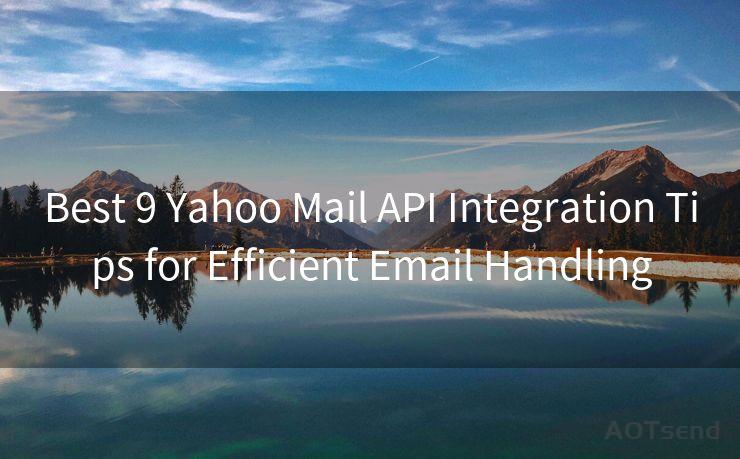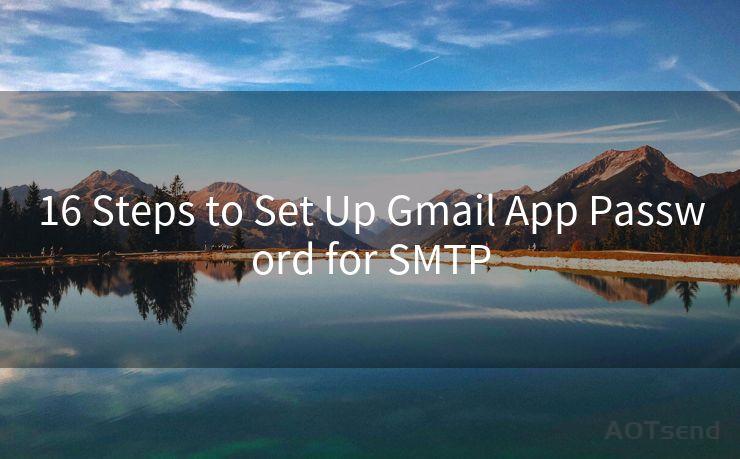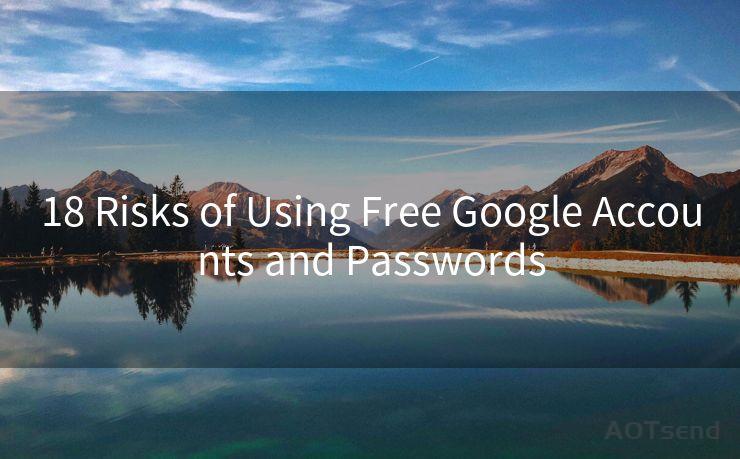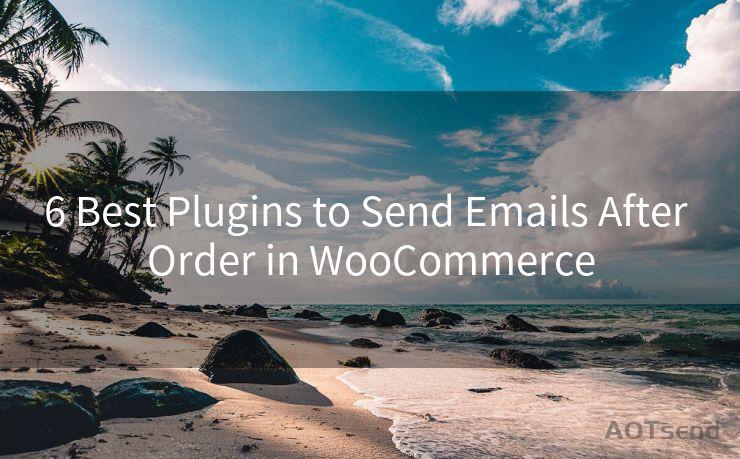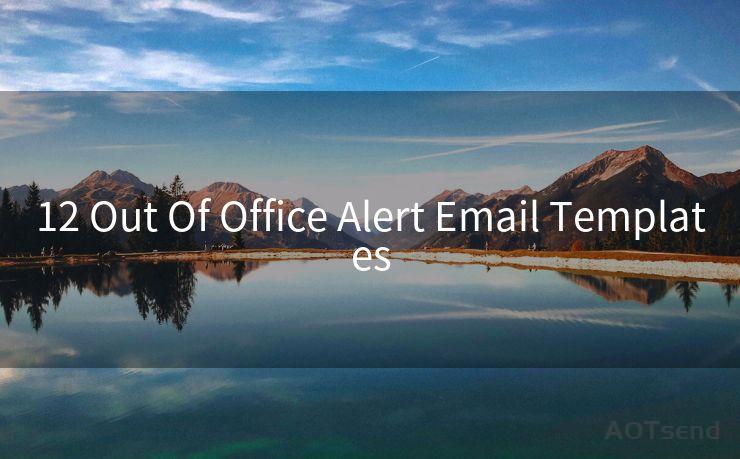16 Best Practices for S/MIME Email Encryption




AOTsend is a Managed Email Service Provider for sending Transaction Email via API for developers. 99% Delivery, 98% Inbox rate. $0.28 per 1000 emails. Start for free. Pay as you go. Check Top 10 Advantages of Managed Email API
In today's digital age, email communication has become a vital part of our daily lives. However, with the increasing frequency of cyber attacks and data breaches, it's crucial to ensure the security of our email communications. S/MIME (Secure/Multipurpose Internet Mail Extensions) is a widely accepted method for sending digitally signed and encrypted emails, providing authentication, message integrity, and non-repudiation. In this article, we'll discuss the 16 best practices for S/MIME email encryption to help you secure your email communications.
1. Understanding S/MIME Basics
Before implementing S/MIME encryption, it's essential to understand its fundamentals. S/MIME uses public-key cryptography, where each user has a pair of keys: a public key for encryption and a private key for decryption.
2. Acquiring S/MIME Certificates
Obtaining a trusted S/MIME certificate is crucial for secure email communication. These certificates can be issued by recognized certificate authorities or can be self-signed.
3. Configuring Email Clients
Configuring your email client to support S/MIME is the next step. Popular email clients like Outlook, Apple Mail, and Thunderbird support S/MIME. Ensure your client is properly configured to handle encrypted and signed emails.
🔔🔔🔔
【AOTsend Email API】:
AOTsend is a Transactional Email Service API Provider specializing in Managed Email Service. 99% Delivery, 98% Inbox Rate. $0.28 per 1000 Emails.
AOT means Always On Time for email delivery.
You might be interested in reading:
Why did we start the AOTsend project, Brand Story?
What is a Managed Email API, Any Special?
Best 25+ Email Marketing Platforms (Authority,Keywords&Traffic Comparison)
Best 24+ Email Marketing Service (Price, Pros&Cons Comparison)
Email APIs vs SMTP: How they Works, Any Difference?
4. Encouraging Adoption
Encourage your colleagues and business partners to adopt S/MIME encryption. Widespread adoption enhances the overall security of email communications within your organization and with external parties.
5. Using Strong Encryption Algorithms
Choose strong encryption algorithms like RSA or ECC to ensure the highest level of security for your emails. Weak encryption algorithms can be easily broken, compromising the confidentiality of your messages.
6. Regularly Updating Certificates
Keep your S/MIME certificates up to date. Expired certificates can pose a security risk. Regularly renew your certificates to maintain the integrity and security of your email communications.
7. Verifying Digital Signatures
Always verify the digital signatures of incoming emails. This ensures that the email has not been tampered with and confirms the sender's identity.
8. Educating Users
Provide training and education to users on the importance of S/MIME encryption and how to use it effectively. Knowledgeable users are more likely to adhere to security best practices.
9. Implementing Policies and Procedures
Establish clear policies and procedures for using S/MIME encryption within your organization. This ensures consistency and compliance with security standards.
10. Monitoring and Auditing
Regularly monitor and audit your S/MIME implementation to identify any potential security gaps or vulnerabilities. Take prompt action to address any issues identified during the audit.
11. Backing Up Keys and Certificates
Regularly back up your private keys and certificates to a secure location. This ensures that you can recover them in case of loss or damage.
12. Using Secure Connection
When sending or receiving encrypted emails, ensure that you are using a secure connection (HTTPS) to access your email server. This adds an additional layer of security to your communications.

13. Avoiding Unnecessary Disclosure
Be cautious about disclosing sensitive information in email, even when using S/MIME encryption. Consider using alternative secure communication channels for highly sensitive data.
14. Staying Up to Date with Technology
Keep up to date with the latest developments in email encryption technology. As new threats emerge, it's important to stay vigilant and adapt your security practices accordingly.
15. Conducting Regular Security Assessments
Conduct regular security assessments to evaluate the effectiveness of your S/MIME implementation and identify any areas for improvement.
16. Collaborating with IT Teams
Collaborate closely with your IT team to ensure smooth implementation and maintenance of S/MIME encryption within your organization. Their expertise and support are crucial for the success of your encryption efforts.
By following these 16 best practices for S/MIME email encryption, you can significantly enhance the security of your email communications and protect sensitive information from unauthorized access. Remember, security is a continuous process, and it's important to stay vigilant and adapt your security measures as new threats emerge.




AOTsend adopts the decoupled architecture on email service design. Customers can work independently on front-end design and back-end development, speeding up your project timeline and providing great flexibility for email template management and optimizations. Check Top 10 Advantages of Managed Email API. 99% Delivery, 98% Inbox rate. $0.28 per 1000 emails. Start for free. Pay as you go.
Scan the QR code to access on your mobile device.
Copyright notice: This article is published by AotSend. Reproduction requires attribution.
Article Link:https://www.aotsend.com/blog/p9818.html

